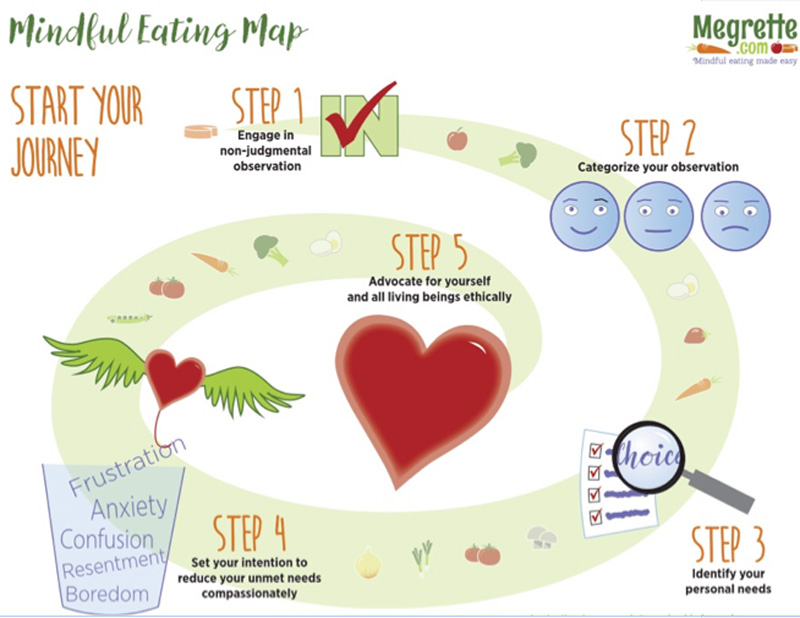 In examining the logic, you can see there is a false belief in the statement, “If I was ______, then I would be ______.” Like some sort of twisted MAD LIB’s game, clients fill in the missing word pairs something like this:
In examining the logic, you can see there is a false belief in the statement, “If I was ______, then I would be ______.” Like some sort of twisted MAD LIB’s game, clients fill in the missing word pairs something like this:
- Thin: Happy
- Smaller: Beautiful
- Dieting: Healthy
- In Control: Cured
These “If/Then” statements are supported by our culture, biased writing, and misinformation about health. The cultural bias towards thinness prevents the necessary questioning of both the ineffective coping mechanism and the distorted logic.
I spoke about this in my previous post, explaining, “In the book, Originals, by Adam Grant, research shows being around people who genuinely believe differently than you will expand your view point and improve outcomes!” This failure to question the status quo, as healthcare professionals, creates a difficult place for us to logically defend.
When the normal desire to be happy is paired with the false logic that “thin” equals happy disordered eating begins. It may be small, but the distortion of thoughts, beliefs and science bias begins. There is a growing movement among dietitians and health professionals called “Health at Every Size” which explores how to compassionately unpack the faulty logic surrounding the Thin Ideal.
The Evidence in Support of Mindful Eating
Mindfulness Based Interventions for eating, MBI – for eating, provides moderate to strong effectiveness in the treatment of Binge Eating Disorder. MBI – for eating creates a direct experience for an individual who has disordered thoughts and behaviors surrounding food and eating to see how ineffective (and temporary) food is as a way to cope. Developing the counseling conditions for this amazing epiphany to arise is the way mindfulness based interventions work. They slowly shift the client away from judgmental thoughts and views in order to understand the eating experience. Using the client’s current and direct knowledge unleashes the power of evocation, or calling forth and upon, his/her own skills, abilities, and wisdom. Mindful Eating can sound like a lot of mumbo-jumbo, and many professionals have asked for a visual way to understand how MBI – for eating works. This prompted the creation of the Mindful Eating Map which is explained in The Core Concepts of Mindful Eating: Professional Edition.
The Mindful Eating Map can help guide you through the five-step process.
- Step 1: Check In – Really pause and notice, what is happening to me?
- Step 2: Categorize the Experience. Is it pleasant, neutral, or unpleasant?
- Step 3: Identify your Personal Needs – to eat, to not eat, and so on.
- Step 4: Set your INTENTION – meet those unmet needs
- Step 5: Advocate for yourself, compassionately!
As a dietitian who has worked with mindful eating for the past 20 years, watching our clients transition away from doubt, fear, and confusion to enjoy food and eating is both inspiring and rewarding. I wish all my clients were able to tap into the power of being present when at a meal, unfortunately, too many continue to be trapped by “diet” thinking and the belief “Thin = Healthy,” especially when they are dealing with diabetes. This trap was set by the misinformation or biased information about health which continues to support and promote the Thin Ideal. It is hard to counter the messaging of five decades of being told “Thin = Health.” It is time for all health professionals to unite and dispel the notion health and happiness are found in a scale or on a chart. Together, we can create, share, and provide the tools necessary to help all our clients compassionately unpack the flawed logic of the Thin Ideal.
In the next post, I will continue to explore how misinformation promotes disordered eating by looking at the research surrounding this topic. Please check out some of my other work, which is available at Megrette.com or keep the conversation going and get more resources, links and ideas from professionals around the world on my Facebook page. If you are looking for CPE, EDO Pro Symposium is an excellent way to advance your learning.
By Megrette Fletcher M.Ed., RD, CDE
Author of Core Concepts of Mindful Eating: Professional Edition


